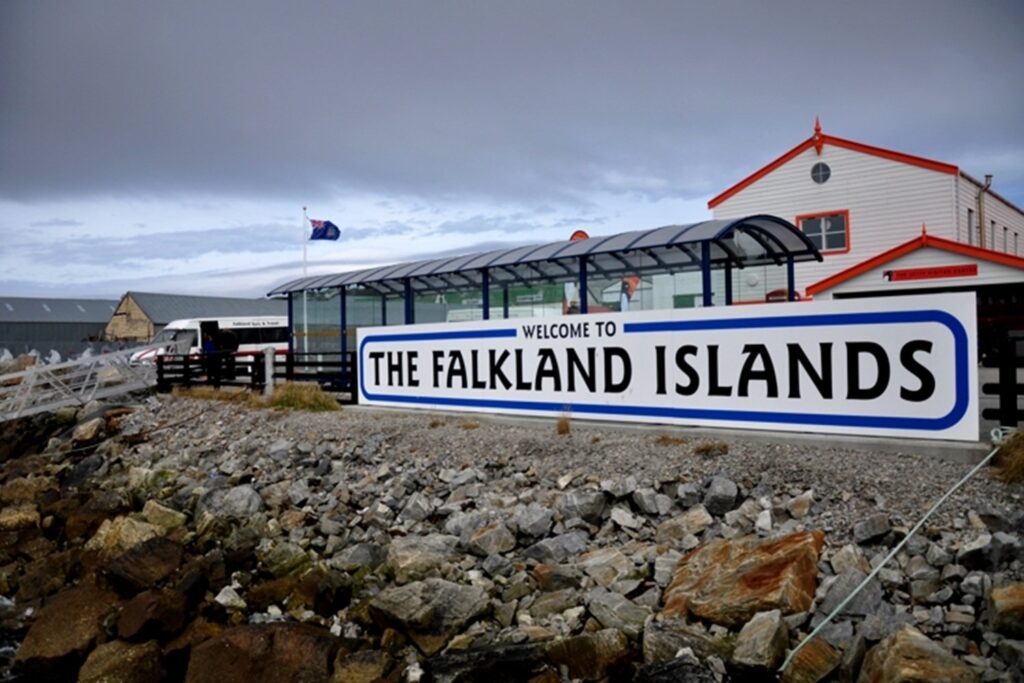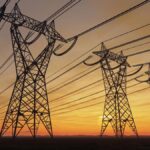On Tuesday, February 4th, Starlink users in the Falkland Islands woke up with an email from the company saying they were about to be cut off. “You are currently using Starlink in an unauthorized territory. Local telecommunication authorities have instructed Starlink to disable your services,” the email said, according to reporting from the website OpenFalklands.
Using a Starlink terminal in the Falklands is, technically, illegal unless you’ve got a specialized and expensive license. The locals are trying to change that but that hasn’t stopped them from hooking up their homes to Starlink satellite terminals anyway. But last week it seemed that someone narced out the Falkland citizens to Starlink and that the service would soon be cut off.
There are a lot of reasons to hate SpaceX founder and Starlink impresario Elon Musk. He is, at the moment, rampaging unchecked through the U.S. federal government, he ruined Twitter, and he wants to move to Mars instead of fixing Earth. Starlink though? Starlink is pretty great and this story out of the Falklands is a good reminder that his satellite internet service is an effective way to keep people online in remote areas across the planet.
The Falkland Islands is a British territory off the coast of Argentina in South America. It’s a remote place with a small population of just under 4,000 people. The internet service there sucks. A British broadband company called Sure operates a monopoly on the island and the broadband prices and services are archaic.
The cheapest internet package costs about $18, has a max download speed of 4Mbps, and shuts off after you’ve used 10 gbs of data. The cheapest unlimited plan costs $285 dollars a month and advertises speeds of 10Mbps. Customers on cheaper plans can buy “boosters” to get more data at $19 a GB. The unlimited plans are new and Sure only started offering them four months ago as Starlink gained popularity.
For many people, Starlink’s satellite-based internet was a better option. It technically wasn’t available in the Falklands, but customers on the island could operate in “roaming” mode and pay $50 for 50gb or $165 for unlimited services. Starlinks speeds are, at a minimum, ten times as fast as what Sure offers.
Sure and the Falklands Island Government did offer a way for people on the island to legally use Starlink. They just had to apply for and pay a “license fee” of $6,714 every year for the privilege. In the application, people have to explain why they deserve to break Sure’s monopoly. Falklanders who just want to get decent internet and not be gouged have been fighting with Sure and the government over this issue for months now. At a minimum, they want the cost of the license fee lowered to $223 a year.
As the fight has gone on, Sure and the government have pulled some shady shit. As reported by Falkland Islands Television (FITV), regulators stopped issuing new licenses altogether in December.
“Once the fee is lowered I could be looking at a few hundred applications I might imagine,” Communications regulator Chloe Freeman told FITV at the time. “If there isn’t a common understanding between Falklands Island Government, myself, the people, and sure over what an extenuating circumstance is, and what level of urgency needs to be provided, we’re going to be in a lot of hot water again.” Freeman went on to say she wanted to be fair to both residents and Sure, the broadband company that’s got everyone over a barrel on the island.
To solve the issue, the government put together a Starlink Select Committee. Things heated up around the issue in February and OpenFalklands has an excellent rundown of the timeline. On February 3rd, the committee issued a statement that outlined steps the government should take. It called for lowering the satellite license fee and a reconsideration of how the government processes the applications.
The next day, Starlink users on the island—both the licensed and unlicensed alike—received an email from the company telling them they were about to be cut off. Notice the wording in the email. “Local telecommunication authorities have instructed Starlink to disable your services.”
The day after that, on Wednesday the 5th, the Falkland Islands Communications Regulator put out its own statement. “Despite the wording of the communication from Starlink, FIG has not instructed Starlink to carry out this action,” it said. It also reiterated that Starlink was, technically, operating in the country illegally and “has not applied for regulatory approval, though some exploratory discussions have taken place.”
The same day, Sure issued its own statement. It reminded people that it had given them an unlimited plan (which is more expensive than Starlink) and that it served the community. “Anyone who has been left in an uncertain position with their broadband supply or who needs help improving their broadband performance should get in touch with us.”
Comments under Sure’s statement on Facebook aren’t positive. ‘So ‘hypothetically’ instead of paying [$74] for an average of 200mbps I can pay [$533] for at best 15mbps? Wow … Where do I sign??” Said one user.
“What a joke. Been there done that, been fobbed off. Would be embarrassed putting my name on this statement,” said another.
“Unlimited packages are for the rich. The prices we have to pay to stay connected to our family outside the Falkland Islands is disgusting and highly embarrassing. As a family of 4 (low income household) who use the Internet daily whether that be streaming tv, gaming, YouTube that is not possible on a sure package let along enough megabytes to make it to the end of the month,” another comment said. “You have stopped us from living in the real world where the Internet is in fact an everyday part of life. Cheers Sure.”
There was good news on the horizon, however. OpenFalkslands reported on Monday the 10th that many of the Starlink accounts that had been scheduled to be cut off were suddenly back online. Starlink’s website also changed. Its coverage map now shows that the Islands will officially come online as part of its service “starting in 2025.”
“Looking ahead, we can now anticipate the resolution of this situation with official government support for Starlink in April 2025,” OpenFalkslands said. “The Executive Council (EXCO) expects to receive a report shortly, which will outline the recommended path forward for permitting Starlink to offer legal service in the Falklands.”







